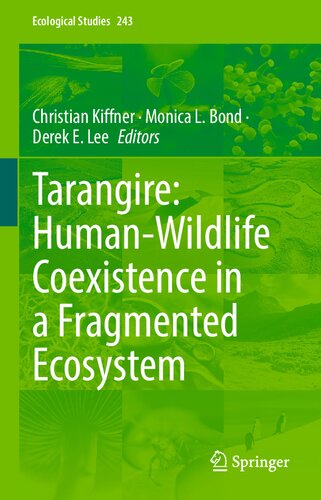
Tarangire: Human-Wildlife Coexistence in a Fragmented Ecosystem PDF
393 Pages·2022·9.657 MB·English
Most books are stored in the elastic cloud where traffic is expensive. For this reason, we have a limit on daily download.
Preview Tarangire: Human-Wildlife Coexistence in a Fragmented Ecosystem
Description:
This edited volume summarizes multidisciplinary work on wildlife conservation in the Tarangire Ecosystem of northern Tanzania. By drawing together human-centered, wildlife-centered, and interdisciplinary research, this book contributes to furthering our understanding of the often complex mechanisms underlying human-wildlife interactions in dynamic landscapes. By synthesizing the wealth of knowledge generated by anthropologists, ecologists, conservationists, entrepreneurs, geographers, sociologists, and zoologists over the last decades, this book also highlights practicable and locally adapted solutions for shaping human-wildlife interactions towards coexistence. Readers will discover the reciprocal and often unexpected direct and indirect dynamics between people and wildlife. While boundaries (e.g. between people and wildlife, between protected and un-protected areas, and between different groups of people) are a common theme throughout the different chapters, this book stresses the commonalities, links, and synergies between seemingly disparate disciplines, opinions, and conservation approaches. The chapters are divided into clear sections, such as the human dimension, the wildlife dimension and human-wildlife interactions, representing a detailed summary of anthropological, ecological, and interdisciplinary research projects that have been conducted in the Tarangire Ecosystem over the last decades. Beyond, this work contributes to the debate about land-sharing versus land-sparing and provides an in-depth case study for understanding the complexities associated with human-wildlife coexistence in one of the few remaining ecosystems that supports migratory populations of large mammals. The topic of this book is particularly relevant for students, scholars, and practitioners who are interested in reconciling the needs of human populations with those of the environment in general and large mammal populations in particular.
See more
The list of books you might like
Most books are stored in the elastic cloud where traffic is expensive. For this reason, we have a limit on daily download.
